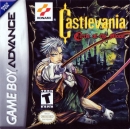| LuisPacheco said: Maybe it's just me being dense but you already knew 999,999 doors did not contain the car. 999,998 are revealed to be goats. So where's the new information? You weren't given any. You have the same information you always had, that 1 box out of a million had a car. Now it could either be door #1 or door #2. The chances remain the same for each and that's 1 in a million. |
With your last line it should be clear you made a mistake somewhere. It's impossible for the chances of both doors to be 1 in a million, unless you think there's a 999,998 chance there is no car.
Here, let's try to put it another way - your two choices aren't door #1 and door #2. Your two choices actually are
- Your pick
- Monty's pick
As there are 1,000,000 doors, and we know there's only one car, the chances of you yourself picking the car is 1 in a million.
The remaining chance, Monty's pick, is therefore 999,999 in a million. Think about it:
Case 1: You pick the correct door. The car is in your door. (1 in a million chance)
Case 2: You pick the incorrect door. The car is in the other door. (999999/1m chance)
Does that make sense?












































 .
.





















